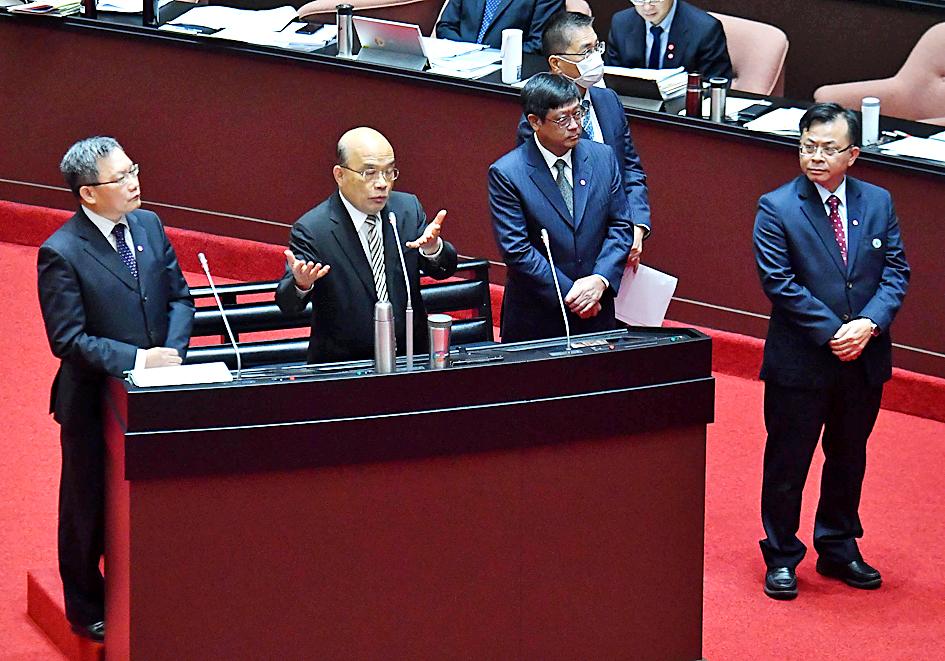The government would investigate claims that no university has ever been punished for signing letters affirming Beijing’s “one China” principle, and handle infractions appropriately, Premier Su Tseng-chang (蘇貞昌) said yesterday.
“Academic exchanges should not come with political preconditions,” Su told reporters at the Legislative Yuan in Taipei.
In March 2017, Shih Hsin University was found to have signed an agreement with three Chinese universities to refrain from discussing any “sensitive political topics” in courses or activities attended by Chinese students.
The Ministry of Education said at the time that 72 of the nation’s 157 tertiary institutions had signed similar letters since 2005.
However, a recent investigation by the ministry found that no school has ever been penalized for signing such letters, since universities are self-administered.
Democratic Progressive Party (DPP) legislators Wang Ting-yu (王定宇) and Chao Tien-lin (趙天麟) have proposed amending the Act Governing Relations Between the People of the Taiwan Area and the Mainland Area (兩岸人民關係條例) to tackle China’s “united front” tactics.
There is a loophole in the section that governs cross-strait educational exchanges, Wang said on Monday.
Article 33-3 states that schools must apply for permission before “forming any coalition or engaging in any other cooperative activity or any written agreement” with a Chinese institution, Wang said.
Under the proposed amendment, the article would be changed to clarify that restricted activities include “concluding a coalition, written agreement or cooperative activity, or a unilateral agreement or declaration,” he said.
The second paragraph would be changed to say that exchanges must not “involve any content of a political nature” to they must not “involve cooperation with united front political objectives of the Mainland area,” he said.
The proposal would also amend Article 90-2 to require authorities to cut off financial assistance or restrict enrollment for schools found guilty of contravening the provisions.
“China wants to eliminate our nation’s sovereignty,” he said. “How can Taiwanese schools allow other countries to use the ‘one China’ principle to limit academic exchange and education?”
Amending the law would protect teachers from Chinese coercion and ensure that schools report infractions to the ministry, Wang added.
“Taiwan already bans political and military entities from school campuses, how could it allow the Chinese Communist Party to sneak its way in?” he said.
Taiwan Statebuilding Party Legislator Chen Po-wei (陳柏惟) yesterday told reporters that he supports the proposals, because while China claims it is not creating conflict with other nations, it is accustomed to using “united front” tactics against Taiwan.
While Chinese missiles cannot annihilate, Beijing seeks to use psychological, cultural, educational and other tactics to “win over” Taiwan, Chen said.
Source: Taipei Times - 2020/10/07





















